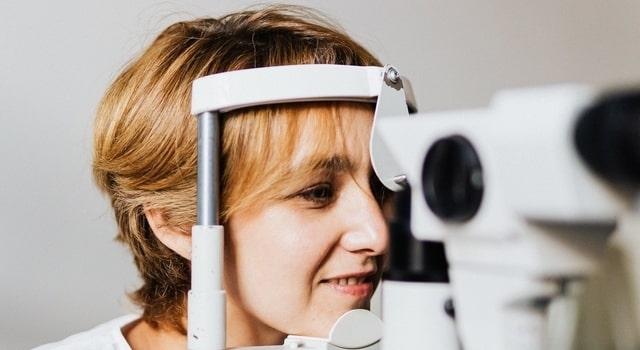
Your vision is one of the most valuable assets you have. But how often do you really think about your eye health? Many people put off regular eye exams, believing their vision is fine. However, waiting until you notice problems could lead to undetected issues that might affect your eyesight in the long run.
If you can’t remember the last time, you had a comprehensive eye exam, it’s time for a check-up. Here are some key signs that you should schedule your next eye exam soon—and why you shouldn’t wait.
Why Routine Comprehensive Eye Exams Matter
A comprehensive eye exam is not just about updating your prescription for glasses or contacts. It’s a detailed evaluation of your overall eye health, allowing your optometrist to detect issues early before they become more serious. Eye conditions like glaucoma, cataracts, and macular degeneration often develop without obvious symptoms, so regular exams are key to catching these problems early and maintaining clear vision.
Signs It’s Time for Your Next Eye Exam
If you have noticed any of the following signs, it’s time to schedule a comprehensive eye exam. Even if you don’t have symptoms, regular check-ups are essential for protecting your eye health.
1. Blurry or Hazy Vision
Blurry vision can be caused by several factors, including the need for a new prescription or the early stages of an eye condition. If you are having trouble seeing objects clearly—whether up close or far away—this could be a sign that your vision has changed. An eye exam will determine whether your prescription needs to be adjusted or if an underlying issue is affecting your sight.
2. Frequent Headaches
Headaches can often be linked to eye strain, especially if you spend long hours reading, working on a computer, or focusing on small details. If you are experiencing frequent headaches, particularly after periods of visual concentration, your eye muscles may be working harder than they should. A comprehensive eye exam can identify if you need vision correction or if other eye-related issues are contributing to your discomfort.
3. Eye Strain or Fatigue
Do your eyes feel tired or strained by the end of the day? Eye fatigue is often a result of overuse, particularly in our digital world, where screens dominate work and leisure activities. Digital eye strain, also known as computer vision syndrome, is becoming more common. Regular eye exams help identify if you are experiencing strain and offer solutions like specialized lenses or suggestions for taking screen breaks.
4. Trouble Seeing at Night
Night vision problems can indicate several issues, from cataracts to changes in your prescription. If you have noticed difficulty driving at night, seeing in low light, or experiencing glare from headlights, it is time for an eye exam. Your optometrist can assess whether your vision has changed or if an eye condition is affecting your ability to see in the dark.
5. Dry, Itchy, or Red Eyes
Dry eyes are a common issue, particularly for those who spend a lot of time in front of screens or in dry environments. Persistent dryness, itching, or redness may be a sign of a more serious issue like dry eye syndrome or an allergic reaction. A comprehensive eye exam will identify the underlying cause and offer appropriate treatment options.
6. It’s Been Longer Than Recommended Since Your Last Exam
Even if you haven’t noticed any vision changes, it’s important to schedule regular eye exams. Adults aged 18 to 60 should have their eyes checked every two years, while those over 60 or with certain health risks (like diabetes) should have annual exams. Regular check-ups help catch problems early, before they affect your sight or overall health.
Don’t Wait: Request Your Eye Exam
Your eyes are constantly changing, and regular eye exams are essential for keeping your vision clear and healthy. Whether you have noticed symptoms like blurry vision or eye strain, or it’s been over a year since your last exam, now is the time to act. A comprehensive eye exam can detect early signs of eye disease, provide you with the right prescription, and give you peace of mind about your overall eye health.
Don’t wait for vision problems to arise—schedule your comprehensive eye exam and take a proactive step toward protecting your eyesight for the future.

